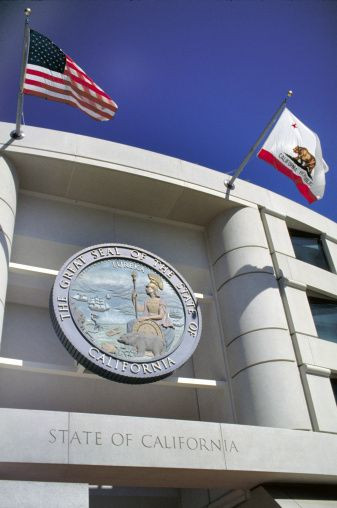
Sergio Garcia's very presence in the United States is considered a misdemeanor. But after having graduated from Cal Northern School of Law in Chico in 2009 and later passed the California state bar exam on his first try, Garcia, whose parents brought him from Mexico into the country without papers as a baby, wants the California Supreme Court to grant him a license to practice law. On Wednesday, the 36-year-old will appeal to that court, with the approval of the state bar and California Attorney General Kamala Harris. The US Department of Justice has other ideas: the Associated Press reported on Wednesday that it has filed to block Garcia's request to have his case heard.
The Department of Justice says that since public money would be funding the California State Supreme Court and officials with the California bar to license and regulate Garcia's practice, he shouldn't be allowed to acquire a license, pointing to a federal law which bars those who are the United States illegally from receiving government benefits. In court filings from the Department of Justice, it called that law "plainly designed to preclude undocumented aliens from receiving commercial and professional licenses issued by states and the federal government."
Garcia calls that decision "a real slap in the face", adding, "I worked hard and have never been a burden to the state". Garcia came to the US from Mexico at 17 months old and remained in California until he was nine, when he returned with his mother. Eight years later, he came back to the United States and applied for citizenship in 1994 with his US-citizen father as a sponsor. That application is still pending. In the meantime, he financed his education by working at a grocery store and publishing a self-help book in 2006, and after passing the bar has supported himself as a motivational speaker and paralegal. "There have been some dark days," he told the AP. "But I'm looking forward to finally presenting my case to the Supreme Court."
Among other things, the state Supreme Court would consider whether the fact that Garcia is in the US illegally constitutes "moral turpitude" or flawed moral character. Joe Dunn, executive director of the State Bar of California, told Southern California Public Radio (SCPR) in January that the question of whether he would be authorized to work for a law firm mattered less than the question of his character. "The employability question may be an important question in society; it is not a relevant question when it comes to one's fitness, which is all our decision is, to practice law."
To this, Garcia responded, "What was my moral duty at 17 months?"
RELATED: Canada's Immigration Reform: What Did The US Senate's Comprehensive Bill Borrow From Our Neighbors To The North?
© 2025 Latin Times. All rights reserved. Do not reproduce without permission.




